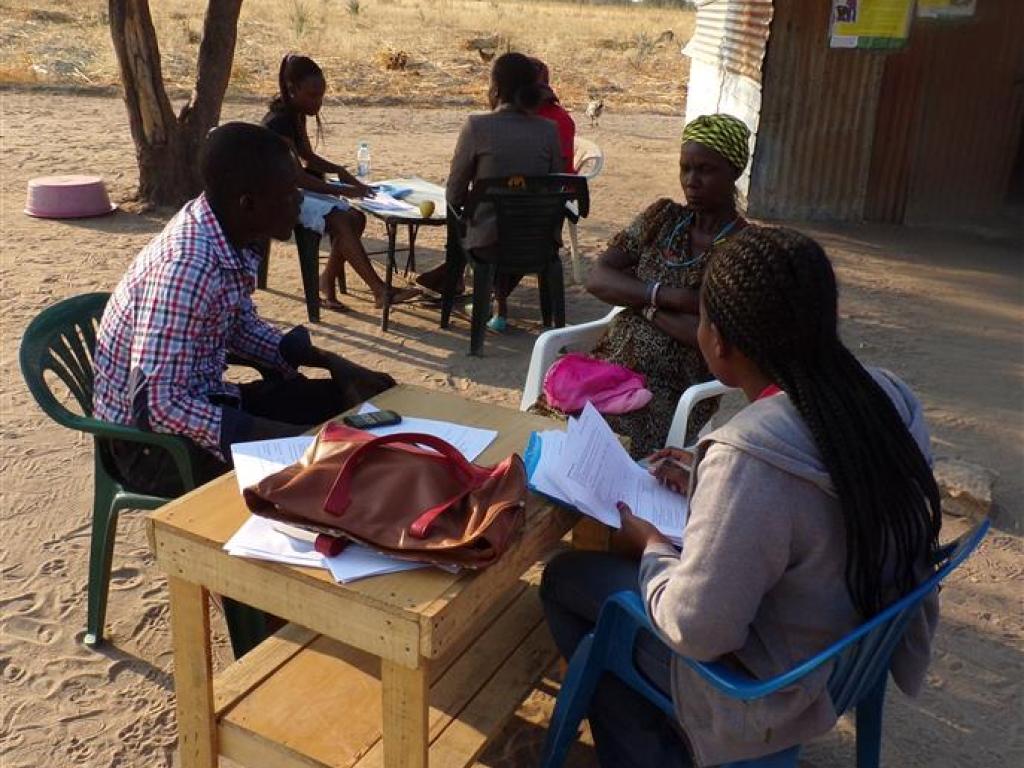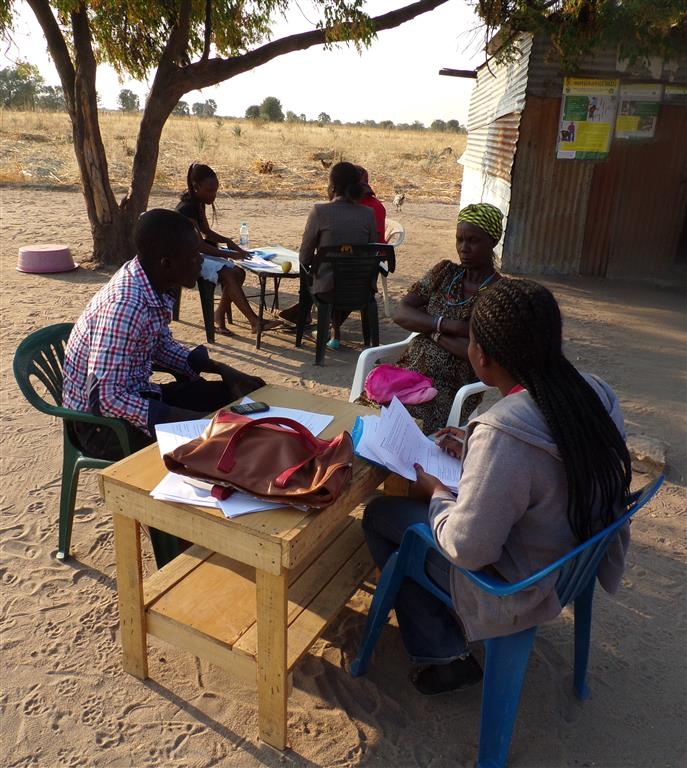Considering cultural beliefs in climate science


When it comes to the communication of climate information Southern Africa experiences the same challenges as many other developing countries: too little, too late, too general, not far-reaching enough and not catered to local language needs. We expected to find evidence of these challenges during our work in Bobirwa sub-district in Botswana. However, it was surprising to see the extent to which cultural beliefs added another layer of complexity.
In January 2015 ASSAR researchers from the Universities of Botswana and Cape Town met with chiefs in Bobonong to discuss climate related issues, and to better understand local perceptions of climate change and its causes.
The chiefs were well aware that less rain was falling, rains were arriving at different times and droughts were lasting longer. In a region where livelihoods depend on agriculture, these changes to the hydrological system pose significant threats. Interestingly, the chiefs interpreted these climate shifts in the context of traditional and Christian belief systems.
For some of the chiefs, climate change was considered as a punishment by the ancestors for the shift to Christianity and the abandonment of traditional beliefs and rituals.
“We are totally lost. We have abandoned our culture. From early childhood we had water all over from rivers. Our gods are not happy with us that we do not observe rituals. In the past people went to the hills to ask for rain from the ancestors and after going to the hills messengers came back to say that the ancestors would grant rain if the people do certain things like observe days of rest. Nowadays no one asks for rain from the ancestors.”
Other chiefs cited dual religious practices – traditional ancestral worship parallel with Christianity – as being the cause of God’s punishment.
“I have seen from many years ago the climate is changing. When I was growing up there wasn’t Christianity and we used to pray to the ancestors and lots of rain came. Because of Christianity we no longer do that. The bible says following ancestors is a waste of time. Now there is confusion and it no longer rains. I believe God is behind the changes.”
Yet others blamed the arrogance and cleverness of humans.
“As human beings we are too clever…flying to the moon. God has punished us for cleverness. The rivers are no longer full like in the past.”
It will require some innovation to be able to communicate climate science to communities whose beliefs of weather and what governs it have such strong cultural origins. However, simply having these conversations and hearing these perspectives gives us a much richer understanding of the cultural contexts in which we are working. In time, we hope these dialogue processes will help us to develop trusting and supportive relationships that we can use as the backbone of our work.